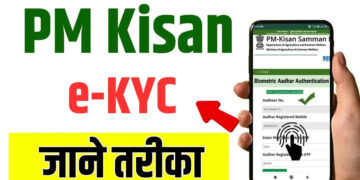If you do a government job then this news is very important for you, because since 1 April 2025, the new pension scheme of the Central Government – Unified Pension Scheme (UPS) has been implemented. For a long time, government employees were demanding guaranteed pension, and in response to this, the government has introduced this new scheme.
So let’s know what is UPS, who will get the benefit of this, and what conditions you have to fulfill.
✅ What is Unified Pension Scheme (UPS)?
The Unified Pension Scheme is a fund-based guaranteed pension scheme which has been launched by the Central Government under the National Pension System (NPS). The purpose of UPS is to provide financial security and permanentness to government employees so that they will get definite income after retirement.
Under this scheme:
Guaranteed monthly pension will be given.
There is also a provision of family pension.
The minimum pension limit has also been fixed.
💼 How to get a guaranteed pension? What are the conditions?
Some important conditions have been set for getting guaranteed pension under UPS:
The employee will have to contribute 10% of his final basic salary and DA (dearness allowance).
The government will also contribute equally in this.
This fund will provide a lump sum amount on retirement and a pension of at least ₹ 10,000 every month.
If the employee takes voluntary retirement (VRS) after 25 years of service, he will get pension only when he reaches a normal retirement age.
At the time of retirement, the employee will also get a lump sum amount.
Also provision of family pension
If an employee dies during service, his spouse will be given a family pension.
Family pension will be 60% of the original pension.
For example, if the employee was getting ₹ 10,000 monthly pension, the family will be given a pension of ₹ 6,000 per month after death.
❌ Who will not get the benefit of UPS?
Not every government employee will get the benefit of this scheme. Person will be considered unqualified for UPS based on certain conditions:
If the service of the employee is less than 10 years, he will not be entitled to pension under UPS.
If someone is dismissed from service, then UPS will not get the benefit.
Employees who have voluntarily voluntarily come under the purview of UPS.
🔁 Once switched to UPS, then not returning
If an employee switchs from NPS to UPS, he cannot return to NPS again in future. This is a one -time option.
Therefore, it is very important to take a decision only by understanding all conditions, benefits and needs before switching.
📈 UPS vs NPS: Who Better?
Aspect NPS UPS Pension Return based, not guaranteed ₹ 10,000 Minimum Guarantee Pension Return Market contributes fixed pension government 10% 10% flexibility less Family Pension Limited 60% Guaranteed 60% Guarantee
UPS is beneficial for those who want permanentity in pension, while NPS gives more returns the possibility but with risk.
📝 Conclusion:
Unified Pension Scheme (UPS) is a major step of the Central Government, which will give millions of government employees confident of financial security. This scheme is ideal for those who want certain and guaranteed pension, especially for later retirement life.
However, it is necessary that employees should understand all its terms and conditions well before joining this scheme, because once you join it, there is no way to return.
If you are a government employee and you have not migrated to UPS, you can soon complete its process by visiting your department or NPS Cra portal. This decision can decide your future financial security.






